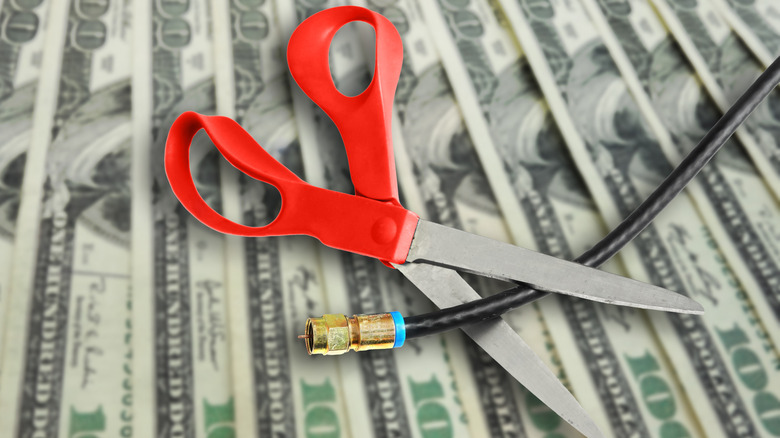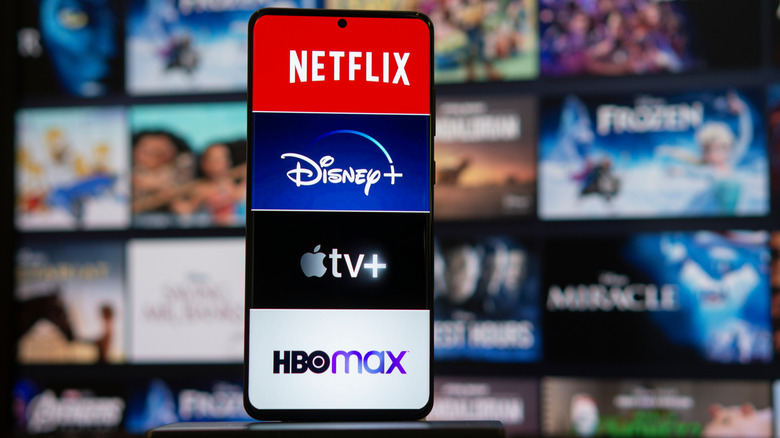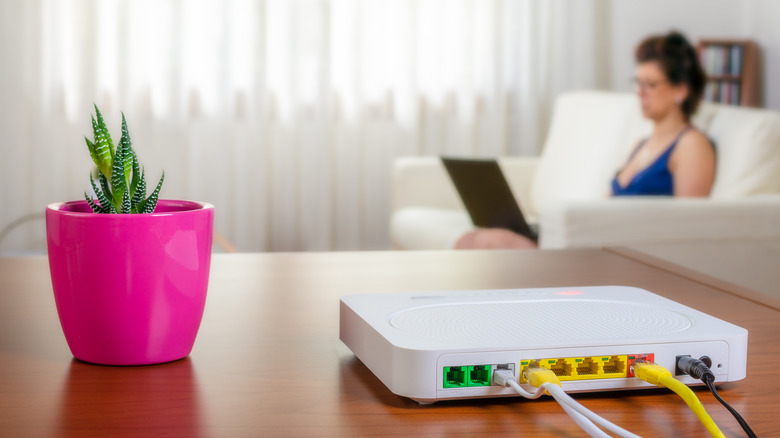The Real Reason Your Internet Bill Is Through The Roof
Yearly price increases for internet service and cable TV have become a tradition for nearly two decades. "They do it every January, and there's absolutely nothing we can do to stop this," said Mark Cooper, director of research at the Consumer Federation of America in Washington, D.C., to Government Technology. Conversely, Europe offers similar plans to their consumers for much less, according to Axios.
Part of the problem lies in the number of households opting out of traditional cable, satellite, or TV services, which has lost 22.8% of customers since 2014, according to eMarketer. In fact, by the time we sing "Auld Lang Syne" to welcome in 2025, less than half of all U.S. homes will subscribe to such providers. "As pay TV subscriber losses accumulate, cable providers have been focusing on their internet services, which are more profitable and have benefited from the consumer shift to streaming video," emarketer forecasting analyst from Insider Intelligence Eric Haggstrom said to emarketer.com.
There are five basic reasons, according to CBS News, why rates keep escalating: Wall Street, cord cutting, monopolies, streaming, and upselling. Here's how all these things are impacting your bottom line.
Wall Street wants profits
Investors want to see the money, which is why internet service providers like cable, satellite, and telecommunication industries are gung-ho to increase their profit margin. But, fewer people use such services these days. Demand for broadband hasn't faltered, though, so companies try to optimize their revenues by consistently raising prices, per CBS News. As Mike McCormack, an analyst at Jefferies, explained to The Motley Fool, current trends show households are moving from a typical triple-play bundle (phone/internet/TV) to broadband-only services — a loss of $32 monthly in EBITDA (earnings before interest, taxes, depreciation, and amortization).
To make up this deficit, providers usually do two things: offer promotional bundle packages and increase their broadband prices. To make this more appealing, these services try strategies like offering faster connections as they eliminate lower-speed alternatives to justify the additional expense. Investors are happy because the lost revenue is offset and profits stay high. Consumers, though, are not as joyful since it hits their pockets.
All that cord cutting
Some 4.1 million cut the cord in 2020 — by eliminating their cable or satellite service and opting for less expensive options such as internet programming, according to N Screen Media. That number will only increase by 2024 when about 46.6 million homes will have snipped that cord; at that point, more than one third of U.S. homes will have abandoned traditional paid television, according to eMarketer.
You would think that cable, satellite, and telecom companies shouldn't fret too much, though, because there are still roughly 77.6 million homes that opt for paid TV subscriptions — but you would be wrong. The once-strong companies look to broadband as a way to optimize revenues since demand for traditional paid-TV lessens. So the services feature new pricing for faster broadband. Sometimes these companies create bundles, like offering phone service with the internet access or special discounts for subscribers that have top-tier packages, according to The Motley Fool. Who pays for such discounts or bundle losses? Why, the customer who only wants broadband, who sees their prices rise and rise.
Monopoly is not just a board game
Some internet service providers have monopolies in certain areas. Consolidation impacts consumer's choices so they must pay whatever rates are given to them. "Internet hikes are something we can't control because there's not a lot of choice among providers," confirmed Jim Wilcox, a Consumer Reports editor to Government Technology. More than 200 million Americans know this all too well because they reside in a town with just one or two internet service providers, according to a White House report. The Wall Street Journal, for example, wrote about Kim Cadena in Alexandria, Virginia, an area that offers just two providers: Comcast Xfinity or Verizon Fios. Her rate has risen over the past few years. "We need more and better internet, and not just for people like me who can afford high speeds and my own Wi-Fi," she said.
Often, people in areas without a selection of providers pay bills five times higher than in other places, according to the White House report. Sometimes internet service providers even make deals with landlords that force a tenant to pay a specific company for their broadband connection. Such collusive agreements prevent infrastructure expansions by new companies since there's no room for growth amid all these secret agreements where whole buildings must purchase access from a single provider.
Streaming all the time
We all love to stream — and this adds expenses to telecom and internet networks, which then must upgrade their infrastructure to handle the data demands. Streaming can use lots of data, and someone must pay for that. How much does it use? In one hour, an HD video requires 3 GB. So multiply that by the 10 Netflix series you just watched.
One reason your bill might rise is all that binge-watching you do. Some internet providers put restrictions on monthly data use, say 1 TB or lower, and if you go over that data cap you're either charged a fee or suddenly the internet speeds slows — something called internet throttling — when an ISP deliberately limits bandwidth or puts the breaks on your connection, according to All Connect.
The streaming services themselves also levy expenses on to viewers. Creating provocative programming isn't cheap ... and that's one of the reasons why Hulu subscribers paid another $10 per month for their content in 2021. But the streaming service that offers original features, along with real-time TV and DVR options, isn't the only provider to up the ante: Disney+ and Netflix also raised their rates (via the Pittsburgh Post-Gazette).
Resist the upsell
Pricier packages that seem like a deal — but somehow come back to haunt you — is something consumers contend with all the time. It is a common tactic for internet service providers to try to get more dollars out of each customer, according to The Washington Post. For instance, companies like to bundle cable TV, phone, and internet together and sell them at "special rates." At some point, this deal expires and often you don't realize it until months later.
Other companies will rent you equipment that you could buy at a cheaper rate, like a modem and router. Tech Crunch offers that a modem, which connects your home to the internet, costs roughly $30 to $100 (depending on model, new/used, etc.), but an ISP will rent that to you for $5 or $10 a month ad infinitum. Most of the time, it's better to buy these yourself and save money. Telecom companies also obfuscate what you are getting; sometimes instead of telling you the broadband speed the service includes, they customize names like "Blast! Pro+," according to The Washington Post. Most of the time, said Tech Crunch, lower tier choices are just fine.





